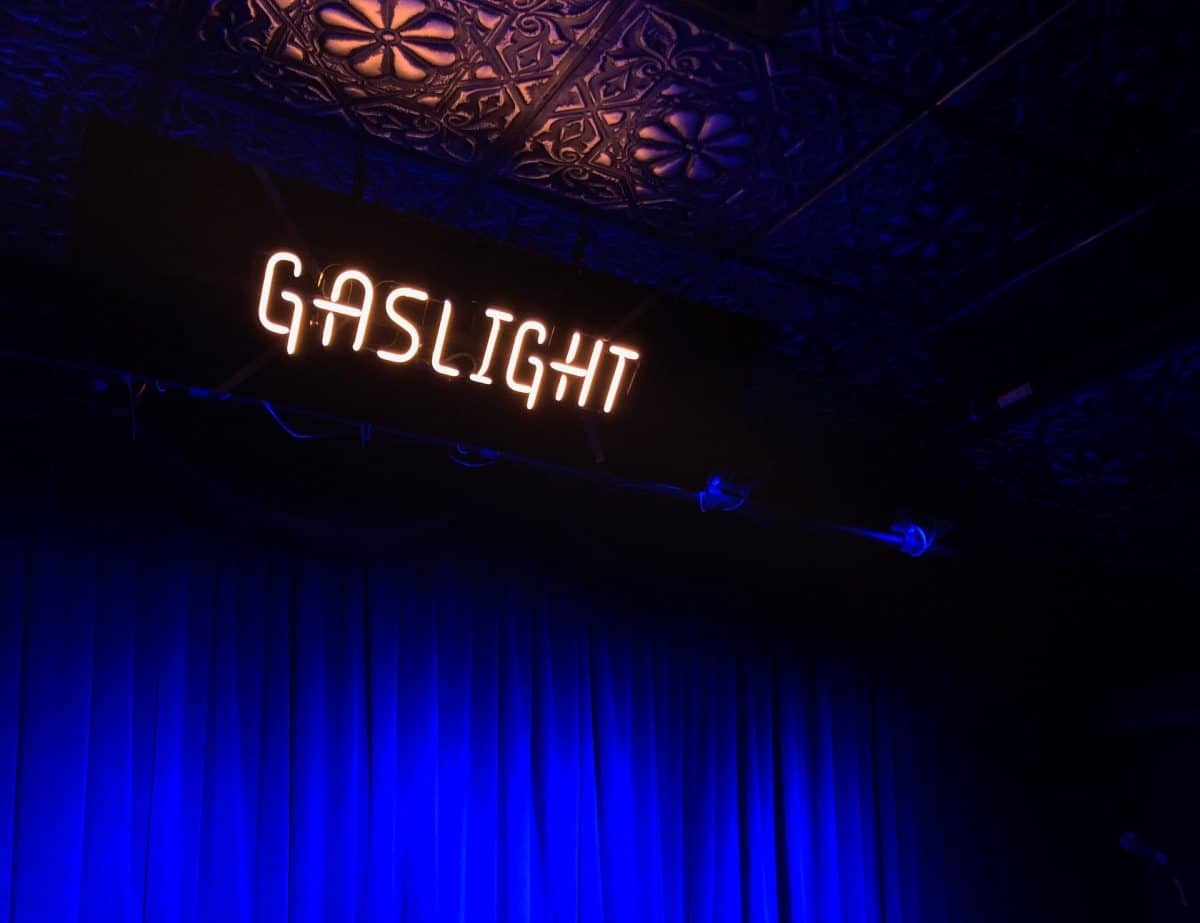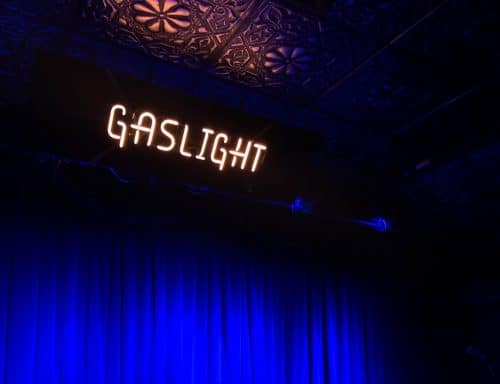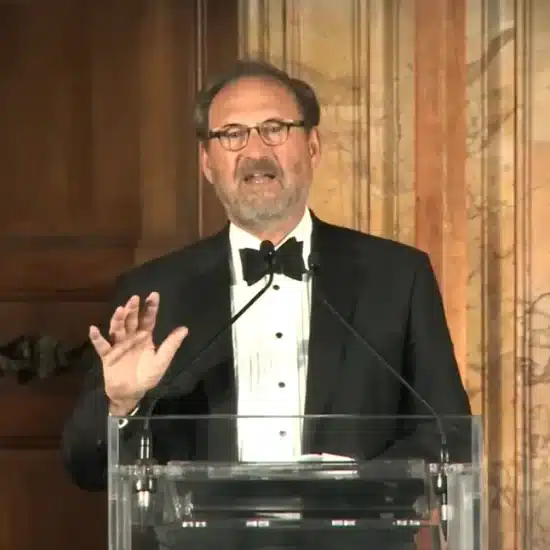
Merriam-Webster announced that their 2022 word of the year is “gaslighting,” which is defined as “the act or practice of grossly misleading someone especially for one’s own advantage.” Gaslighting refers to the psychological manipulation of a person usually over an extended period of time that causes the victim to question the validity of their own thoughts, perception of reality, or memories and typically leads to confusion, loss of confidence and self-esteem, uncertainty of one’s emotional or mental stability, and a dependency on the perpetrator.

Rodney Kennedy
This term most frequently finds expression in the political arena, but there’s a deeper malady facing Christianity. Many of the skeptics, agnostics, secularists, atheists, and non-believers have gaslit our entire culture. As reward for this act of delusion, they have produced the age of unbelief.
A new book, Nonverts, argues that people are not part of the church because of a “herd instinct.” People, with the advent of social media, have discovered that millions of people have either left the church or have never been part of the church. They feel empowered to not be part of the church as a result. They have been persuaded by a line of argument that originates with atheists and secularists that life doesn’t require the existence of God.
The irony is that we live in an age of hyper-individualism. Philosopher Rupert Read says, “We live at a point at which the demand for individual freedom has never been stronger.” My argument exposes a contradiction at the heart of the contemporary move away from faith. These alleged rights to complete freedom mask a boring dogmatic contrarianism among many secularists. It involves a sad conformity satirized in the Monty Python film Life of Brian. There’s this key moment when the crowd repeats, altogether, like programmed robots, the refrain, “We are all individuals.” Too often, secularists think they are being radical and different by being exactly the same as each other.
What is the appeal? How have atheists managed to gaslight so many Americans? There are many reasons why, but the ones we are qualified to make sense of are rhetorical: How did a group of nonbelievers establish such an epistemic power over such a large number of Americans? How did they establish credibility/authority? How have they swayed so many people to leave the church? There are various identifying marks that scholars have given to these departing groups: The NONE’s and the DONE’s.
Some of this persuasion comes in the form of personal testimony. Steven Weinberg ends his a lovely essay, “Without God,” explaining why he cannot believe in God with the confession, “Living without God isn’t easy. But its very difficulty offers one other consolation — that there is a certain honor, or perhaps just a grim satisfaction, in facing up to our condition without despair and without wishful thinking — with good humor, but without God.” The offer on the table that people are taking up is that life without God provides honor, dignity, a grim satisfaction. This seems a Esau-like bargain — a giving up of faith for the swill of atheist soup. This “grin and bear it” with a stiff upper lip seems a far distance from the hope that lives in the hearts of Christian believers.
Many atheists have managed to self-produce an aura of intelligence. The so-called “New Atheists” actually refer to themselves as the “Brights.” Smart people, in other words, no longer believe in God. This may be a reaction to the numbing anti-intellectualism of one form of Christian faith known as evangelicalism. In any event, smart people are presented as those with enough sense not to believe in God.

Alex Wolowiecki / Unsplash
The atheists have an amazing self-confidence to insist that the secular creed has at last been proven: that a belief in a loving God is no longer possible. One of the ironies of the recent spate of books defending atheism is the confidence the “New Atheists” seem to have in knowing which God it is they are sure does not exist. The best-sellers in this genre of unbelief have been Christopher Hitchens, God Is Not Great: How Religion Poisons Everything; Sam Harris, The End of Faith; Daniel Dennett, Breaking the Spell; Richard Dawkins, The God Delusion. One gets the impression that this type of atheist is so sure of victory that their only remaining task is to watch the ship of faith crash into the rocks and sink into the dark and stormy sea.
A claim of superior intelligence, self-confidence bordering on arrogance, and an easy dismissal of more than 2,000 years of Christian belief provide the flares of the gaslighting project of the atheists. In previous moments of a wave of atheism, Christian theologians have weathered the storms. Now, the invention of “gaslighting” — emotional proof and manipulation — seem to give an advantage to the atheists. A generation not interested in reality, facts, or truth can be easily led to follow politicians, preachers, or atheists.
I have to admit that the god these atheists created in order to insist that he doesn’t exist is a god I don’t believe in either. The vague god that they seem to confuse with the god of Christian Nationalism, anti-intellectual evangelicalism, or the feel-good God of televangelism’s Pentecostals cannot be the same God who raised Jesus from the dead. As John Updike put it, “Let us not mock God with metaphor, analogy, sidestepping, transcendence; making of the event a parable, a sign painted in the faded credulity of earlier ages: let us walk through the door.”
Gaslighting — the 2022 word of the year — will have a limited shelf life as more and more people will awaken to reject tiresome emotional manipulation, lies, conspiracy theories, and people who are not nearly as smart as they think. If we are able to bid adieu to gaslighting in 2023, then I say good riddance.
Rodney Kennedy has his M.Div. from New Orleans Theological Seminary and his Ph.D. in Rhetoric from Louisiana State University. The pastor of 7 Southern Baptist churches over the course of 20 years, he pastored the First Baptist Church of Dayton, Ohio – which is an American Baptist Church – for 13 years. He is currently professor of homiletics at Palmer Theological Seminary, and interim pastor of Emmanuel Friedens Federated Church, Schenectady, New York. His sixth book – The Immaculate Mistake: How Evangelicals Gave Birth to Donald Trump – is now out from Wipf and Stock (Cascades).






